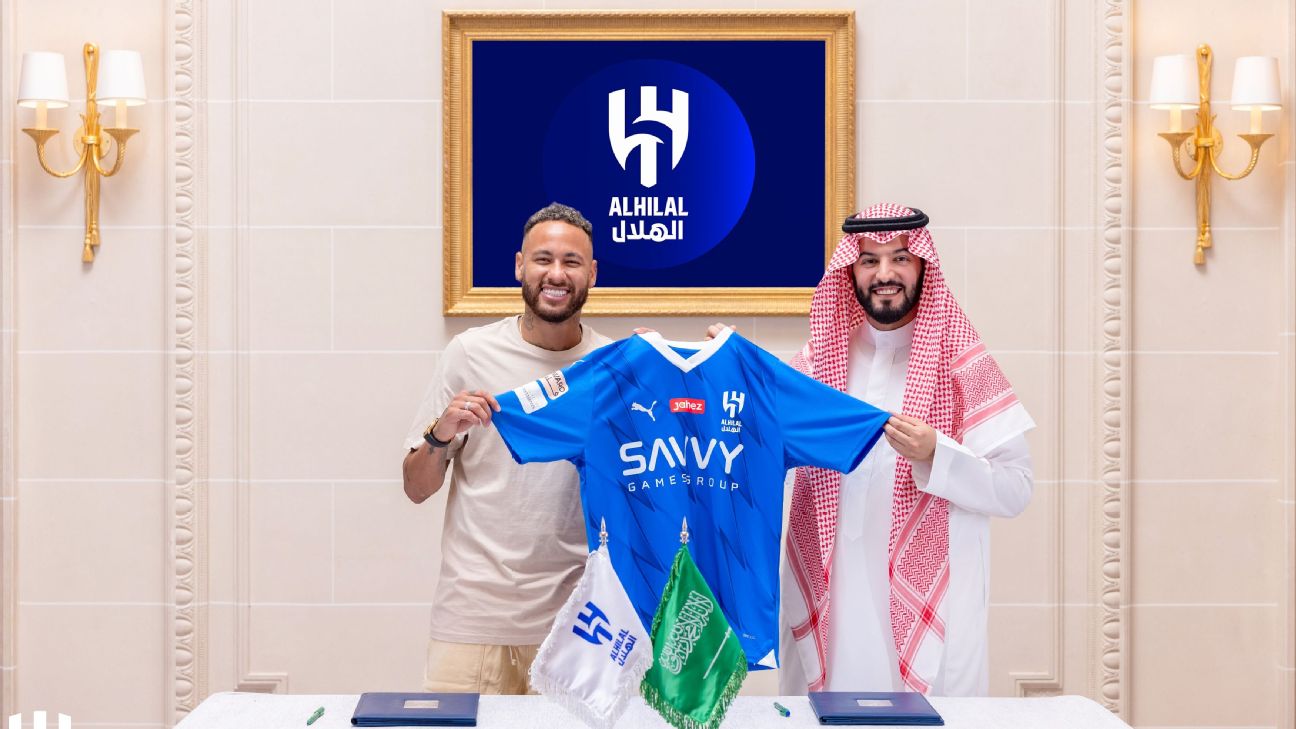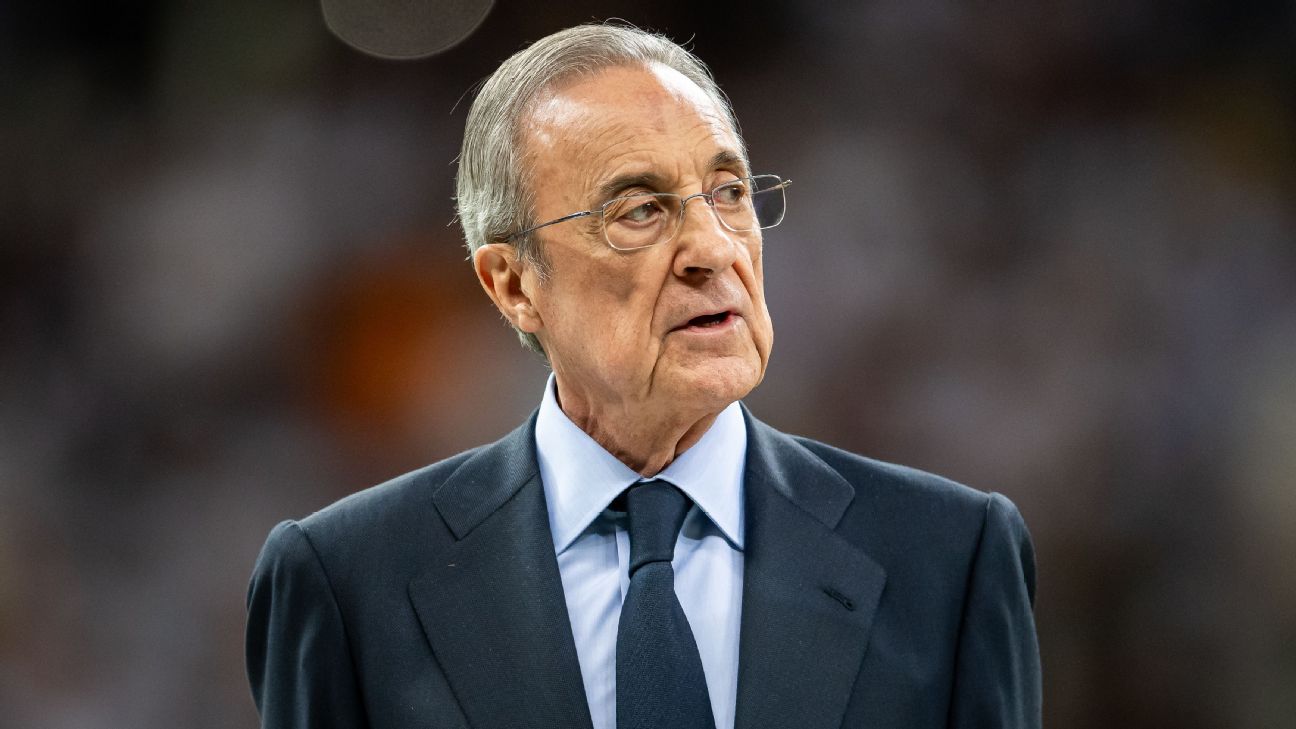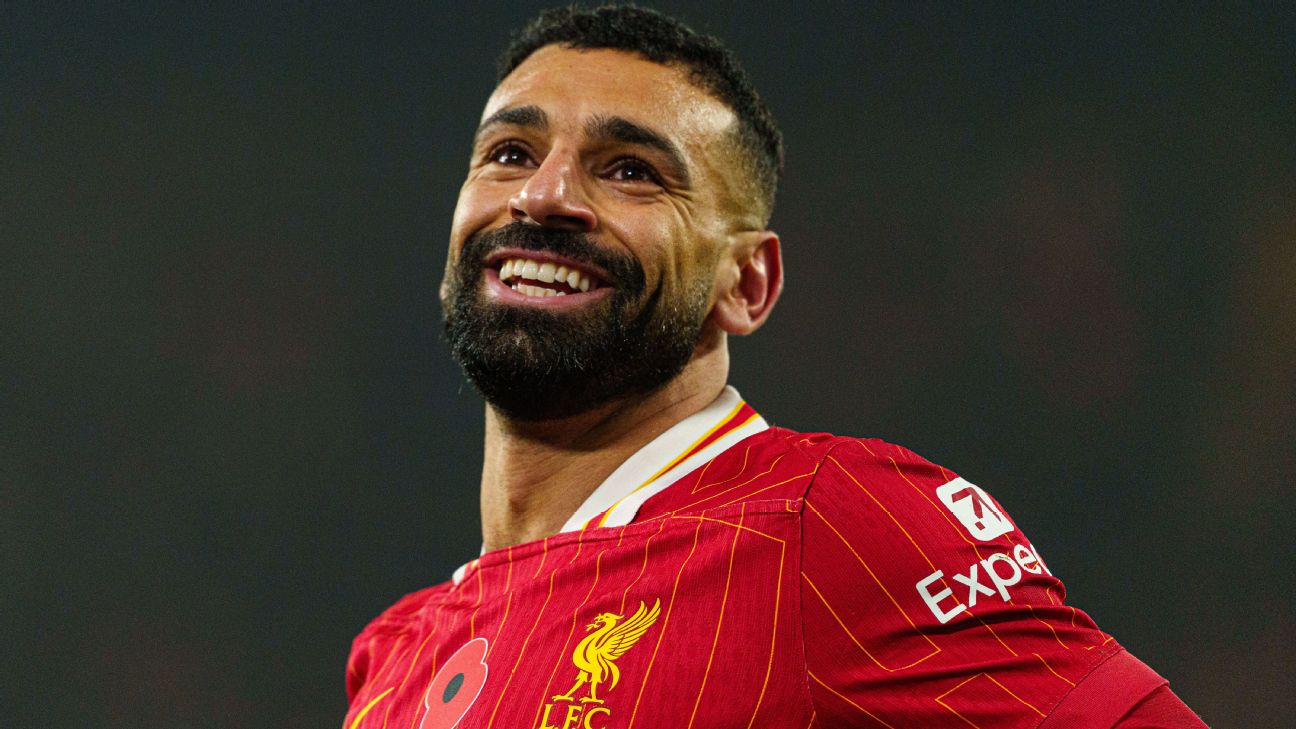“An eternal stain on his career.” That was the headline from Brazil’s biggest sports website about Neymar’s move on Tuesday from Paris Saint-Germain to Al Hilal in Saudi Arabia on a €90 million ($98.6m) transfer fee
It is easy to understand the disappointment and frustration of so many of Neymar’s compatriots. Even as he was entering into adolescence he was marked out as the special one, a breathtaking talent pre-ordained to do two things in his career: firstly, lead Brazil to World Cup triumph, and second, win the world player of the year award.
These were the rods by which his days on the playing field were always going to be measured — by many in Brazil, and, perhaps, by Neymar himself. The first objective has not been achieved — or at any rate, not yet. The World Cup has been cruel to him. He has been blighted by injuries (his back in 2014 and his foot in 2018). But it is a collective endeavour. He cannot do it alone.
– Stream on ESPN+: LaLiga, Bundesliga, more (U.S.)
At the 2022 World Cup in Qatar few months back he did his part. He was somewhere short of full fitness in that fateful quarterfinal against Croatia. But he came up with a moment of pure magic to wriggle his way through the entire opposing defence and score a goal that appeared to seal a place in the semis. It is hardly his fault if the team conceded a last minute deflected goal which forced a penalty shoot out and ultimately Brazil’s elimination.
The second objective is an individual one, and perhaps therein lies the problem. Whatever name it might be trading under, the world footballer of the year award used to be considered a Brazilian birthright (Rivaldo, Romario, and Ronaldinho having all won it). In the era of Lionel Messi and Cristiano Ronaldo it has eluded their grasp since Kaká won it in 2007.
Neymar was supposed to put that right. He has not done so up to now, and will surely be unable to do it from Saudi Arabia. It is this, rather than any political considerations, which led Brazilian journalist Caique Andrade to refer Neymar’s move as a ‘stain.’
“A genius like Neymar,” he wrote, “has the conditions to keep piling up trophies and awards at the highest level of European football. His choices will say whether this is possible or not.”
But this leads to the heart of the matter. Neymar had painted himself into a corner, locked himself into a gilded cage where he was deprived of choices. History may well judge his 2017 move from Barcelona to PSG on a still-world-record transfer fee of €222 million was a disaster. It clearly has not worked out as hoped, and it is probably true that the league was not a good fit for him, that he moved to a competition where the level of physicality made injury problems almost inevitable.
But the rational behind the move is easy to explain. His time at Barcelona was wonderful. But it was Messi’s house. Messi was his friend, but there was an obvious problem. How could he be considered the best in the world if he was playing second fiddle in his own team? He would break away, become the leader of the Paris project. His new club would have few problems winning the domestic league, allowing him to coast a little and save his gas for the Champions League
The decision to head to PSG, then, can be debated. There were pros and cons. The unmitigated disaster, the irredeemable mistake, was that while he was already at PSG he extended his contract until 2027. There is no possible rational to explain the thinking behind this, with the possible exception of a drive for financial security that really should not be necessary.
It has been said that Neymar was confronted with three options. One of them was to work so hard in training that new PSG coach Luis Enrique (his old Barcelona boss) would be won over and he could regain his place in the first team. Possible, perhaps, but extremely unlikely. The key to the situation would appear to be PSG’s new deal with Kylian Mbappé. If Mbappé doesn’t want Neymar around, and Luis Enrique has told Neymar that he does not figure in his plans, then there hardly seems any point in staying.
The second option — wait for a bid from a European club. It almost certainly was not going to come. He might have wanted Barcelona, although Xavi Hernandez might not have wanted him. All this is irrelevant. Barcelona could not afford the asking price — and the idea that any European club was going to stump up six figures for a 31-year-old with an alarming injury record is clearly fanciful.
Neymar could do nothing about this. He could agree to pay for free, but even so he would still be too expensive. He was under contract to PSG, who did not need to transfer him and would only let him go to a Champions League rival for an astronomical fee.
And so Neymar’s route out of the golden cage is to play for Al Hilal for two years for an annual salary of around €91 million — and then become a free agent. This, then, is not a case of Neymar voluntarily fleeing the battlefield — though he is being criticised for doing exactly that. The plan would appear to be a return to Europe in 2025 for another shot at glory — and for a final crack at the World Cup in 2026.
New Brazil coach Fernando Diniz, standing in for a year, is expected to call up Neymar on Friday in the squad for the opening rounds of World Cup qualifiers in September. So is all of this a stain on his career? Or is he taking a roundabout route on the way to a last attempt to make his dreams come true?



